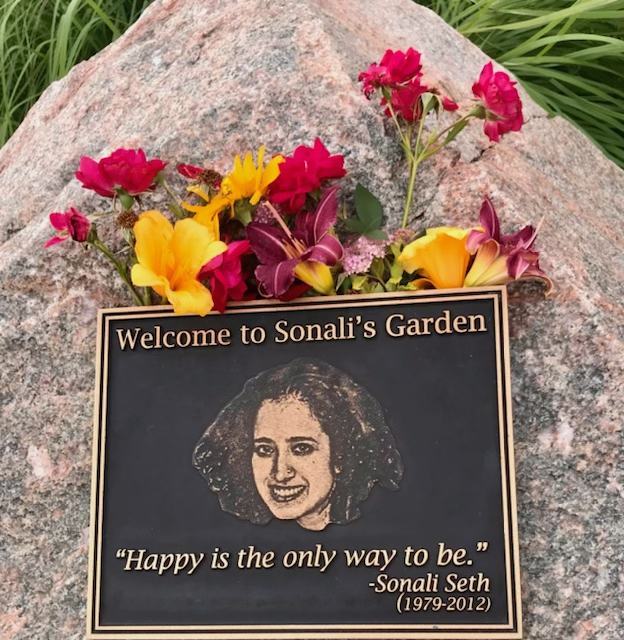Rare diseases are often given importance at Grand Rounds everywhere. Dartmouth is no exception. Esoteric is exciting, in medicine too!
Today's topic Hepato-Renal Syndrome by Dr Block, is remarkably rare. It is a manifestation of end stage liver disease. We hear about MELD scores and renal/ kidney cortical venoconstriction. International Ascites Club... gets a good laugh. They have criteria to diagnose it. Type 1 die quickly without liver transplantation. Other types..2,3,4 live somewhat longer.
New to me, fancy markers of Acute Kidney injury, Cystatin C and NGAL are talked about. More esoterica. Mayo does these tests. Apparently the results of these do not help patients. But keep your eyes out for these anyway. Great on rounds to impress your colleagues! And for high scores on tests!
At DHMC they have not done too many trans venous kidney biopsies, Dr Block says. Can help clarify the causes of the kidney problems. In expert hands it is listed as safe.
Sympathetic nervous system activation in HRS makes the kidney avidly reab sorb sodium.
There is more blood flow to the liver and gut, less to kidney and brain.
Prevention of HRS was discussed. Could give daily Norflox. Also use Pentoxyfylline in Alcoholic Hepatitis. Not used much apparently at DHMC.
Over a hundred people paid for with patient $$, either their medical insurance or their taxes, heard
this discussion in the beautiful weather controlled auditorium. Some watched the live telecast. Others not present either provided care in clinic or hospital or were recovering from night call.
Much more common ailments affecting us were saved fro another day.
If you have read this far skip and go to my blog about Tylenol, an under recognized liver toxin at less than large doses. Usual doses of Tylenol can be toxic. Depending on how much glutathione you have to detoxify NAPQI, a metabolic product of Tylenol.
Or check Wikipedia about NSAIDs, widely prescribed group of drugs and bought directly under names such as Advil, Motrin, Naproxen etc that have under recognized gut inflammation and kidney toxicity in population studies.
It just is not as exciting as esoteric diseases such as HRS.
The patient discussed did well. Mortality postponed by 8 weeks per the speaker. A liver transplant would help longer.MARS could keep these patients a alive as a bridge till transplant is available. A machine that does this was borrowed from Yale on another patient but was unsuccessful in preventing death. But everything possible is often done.
The patient died despite a TIPS done later. Interesting.
Prevention is slow steady work. Who will tell people what will keep them well in our fee for service system?
Everyone clapped at the end of the talk.
Questions followed and comments.
I did not speak up about the futility of such end stage care.
I did not speak up about the huge expenses incurred by such care or the costs of conferences that teach doctors about esoteric diseases.
Someone did.
That was good.
We Doctors do care.
dartmouth
Today's topic Hepato-Renal Syndrome by Dr Block, is remarkably rare. It is a manifestation of end stage liver disease. We hear about MELD scores and renal/ kidney cortical venoconstriction. International Ascites Club... gets a good laugh. They have criteria to diagnose it. Type 1 die quickly without liver transplantation. Other types..2,3,4 live somewhat longer.
New to me, fancy markers of Acute Kidney injury, Cystatin C and NGAL are talked about. More esoterica. Mayo does these tests. Apparently the results of these do not help patients. But keep your eyes out for these anyway. Great on rounds to impress your colleagues! And for high scores on tests!
At DHMC they have not done too many trans venous kidney biopsies, Dr Block says. Can help clarify the causes of the kidney problems. In expert hands it is listed as safe.
Sympathetic nervous system activation in HRS makes the kidney avidly reab sorb sodium.
There is more blood flow to the liver and gut, less to kidney and brain.
Prevention of HRS was discussed. Could give daily Norflox. Also use Pentoxyfylline in Alcoholic Hepatitis. Not used much apparently at DHMC.
Over a hundred people paid for with patient $$, either their medical insurance or their taxes, heard
this discussion in the beautiful weather controlled auditorium. Some watched the live telecast. Others not present either provided care in clinic or hospital or were recovering from night call.
Much more common ailments affecting us were saved fro another day.
If you have read this far skip and go to my blog about Tylenol, an under recognized liver toxin at less than large doses. Usual doses of Tylenol can be toxic. Depending on how much glutathione you have to detoxify NAPQI, a metabolic product of Tylenol.
Or check Wikipedia about NSAIDs, widely prescribed group of drugs and bought directly under names such as Advil, Motrin, Naproxen etc that have under recognized gut inflammation and kidney toxicity in population studies.
It just is not as exciting as esoteric diseases such as HRS.
The patient discussed did well. Mortality postponed by 8 weeks per the speaker. A liver transplant would help longer.MARS could keep these patients a alive as a bridge till transplant is available. A machine that does this was borrowed from Yale on another patient but was unsuccessful in preventing death. But everything possible is often done.
The patient died despite a TIPS done later. Interesting.
Prevention is slow steady work. Who will tell people what will keep them well in our fee for service system?
Everyone clapped at the end of the talk.
Questions followed and comments.
I did not speak up about the futility of such end stage care.
I did not speak up about the huge expenses incurred by such care or the costs of conferences that teach doctors about esoteric diseases.
Someone did.
That was good.
We Doctors do care.
dartmouth


No comments:
Post a Comment
No anonymous comments please.